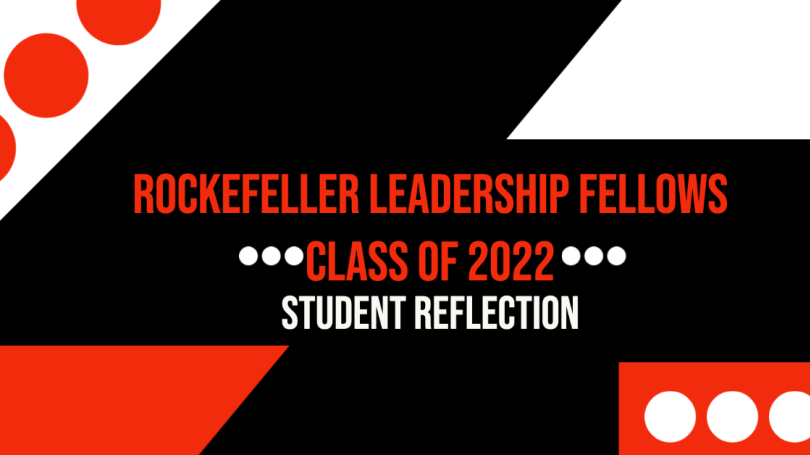
- Public Policy
- Leadership
- Funding
- News & Events
- About the Center
Back to Top Nav
Back to Top Nav
Back to Top Nav
Back to Top Nav
On January 20, 2022, Fellow Chris Jun '22 presented on self-confidence and its role in achieving effective leadership. To contextualize the importance of self-confidence in leadership, Chris shared a personal story outlining his experiences as a teenager working for a manager that lacked self-confidence; he described his work environment as one of low morale, high turnover among staff, and uncertainty in expectations. To facilitate a productive work environment, Chris suggested that self-confidence is essential not only for the leader as an individual and their growth, but also for the leaders' subordinates as trust and loyalty among followers are developed when those in charge believe in themselves and model best practices.
Chris defined self-confidence as a firm belief in one's capacity and abilities, and he shared two types of self-confidence: reasonable self-confidence and overconfidence. Reasonable self-confidence is a positive belief in one's abilities that is grounded in humility, repetitive practices, and self-reflection. Overconfidence, on the other hand, is characterized by an overvaluation of one's abilities and capacities that can lead to negative workplace implications.
In order to build one's self-confidence, Chris recommended three strategies. First, he explained that consistent self-reflection allows leaders to develop a positive self-narrative and overcome a lack of confidence. Self-reflection can take many forms, and Chris highlighted daily journaling and meditation as two promising practices that allow leaders to boost their self-confidence while avoiding the trap of becoming overconfident. Second, Chris shared that repetition in one's behaviors and beliefs is a key ingredient to breeding confidence. Importantly, once a leader hones their skills through repetitive practice, they are better able to invest in the development of their subordinates. Third, Chris asserted that developing a community is essential to building self-confidence as "what we learn comes from what we are shown." By surrounding ourselves with people who affirm our worth while constructively challenging us, we can become more confident while avoiding the perils of overconfidence. No matter which strategy Fellows choose to invest in themselves and grow their self-confidence, Chris' hope is that all of us can become more effective leaders.
As our cohort of Fellows graduate from Dartmouth and embark on careers in the private, public, and nonprofit sectors, we must continue to develop our own self-confidence and seek out confident leaders. By practicing daily self-reflection, refining our skills through repetitive behaviors, and surrounding ourselves with a community of role models, Fellows will be well-positioned to tackle complex challenges and contribute to diverse teams.
-Written by Nate Pucci, Class of 2022 Rockefeller Leadership Fellow
As Rockefeller Leadership Fellows, seniors gain a better understanding of the qualities and responsibilities expected of leaders. As Fellows take part in the workshops, discussions, and team-building exercises, they examine their skills, qualities, and attributes as leaders and analyze how these influence teamwork and achieving goals.